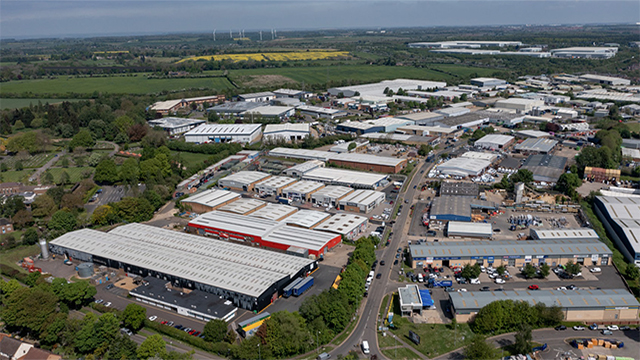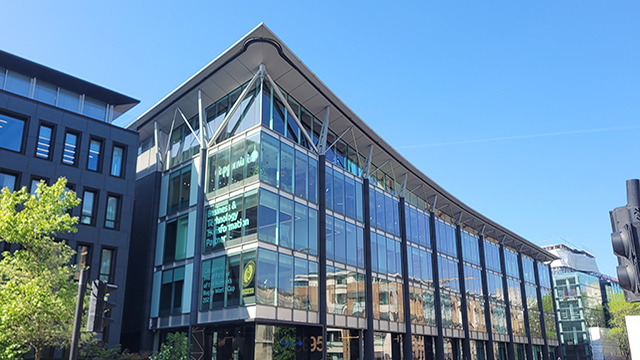Q&A: How is the power of tech helping to mend France’s reputation as a no-go zone for business?
Tamara Brisk, entrepreneur and former France director, WiredScore
France has a reputation. A decades-long legacy off the back of the Mitterand era, when the government passed a series of laws that hampered business.
The wariness of foreign investors to place their bets on France and the drain of French talent overseas is a hangover the country is finally ready to shake as a fresh, innovative government and a burgeoning tech scene are making France an amazing place to do business again.
Tamara Brisk, entrepreneur and former France director, WiredScore
France has a reputation. A decades-long legacy off the back of the Mitterand era, when the government passed a series of laws that hampered business.
The wariness of foreign investors to place their bets on France and the drain of French talent overseas is a hangover the country is finally ready to shake as a fresh, innovative government and a burgeoning tech scene are making France an amazing place to do business again.
Emmanuel Macron’s government has wasted no time actioning some much-needed business-friendly policies.
It has spent time working with regional governments to build up a war chest to provide low-cost loans and subsidies for start-ups as well as to invest in venture capital vehicles.
It has also created special immigration policies to facilitate access to visas for top talent in strategic fields. Now, an engineer with a job offer from one of France’s many successful tech firms is granted a visa automatically.
France’s restrictive labour laws are becoming more flexible which, in turn, is slowly de-risking business creation.
These policies include limiting severance payments, facilitating economic layoffs and allowing employees and employers to negotiate workplace policies on a company basis as opposed to enforcing policies defined by collective bargaining deals.
These policies have been so effective because France is a giant market. Despite 30-plus years of brain drain, wariness of foreign capital and the former bad business reputation, France is the world’s fifth largest economy by GDP.
Paris also has a significant advantage over Germany, its nearest continental rival, as the market is divided among seven cities, including Frankfurt and Berlin.
With 12.4 million residents, Greater Paris is the fourth largest city in the world in terms of wealth creation, behind Tokyo, New York and Los Angeles and tied with London.
This concentration has concrete business advantages. A tech entrepreneur in Paris can see his or her investors, clients and government representatives in one day.
The same entrepreneur in the US would need a week and a few plane tickets to see investors in Silicon Valley, clients in New York and government representatives in Washington.
French RealEstech (PropTech en francais) is a perfect example of the FrenchTech El Dorado. The Parisian office market is the third largest in the world after New York and Tokyo.
It is unsurprising that developer Gecina, with its Parisian portfolio, is now Europe’s largest owner of offices. And Unibail-Rodamco, also headquartered in Paris, is the largest landlord in Europe.
Today France’s massive market and business-friendly policies are accompanied by enthusiasm for the new French #Start-UpNation.
The march of FrenchTech includes the arrival in France of US start-up incubator TechStars, the blockbuster fundraises of Ledger and DoctoLib, and the return of the “pigeons” – entrepreneurs who fled France for tax reasons and have now come back.
The French diaspora, led by their fantastically trained engineers, have been waiting for the right opportunity to come home, bringing all their expertise honed in Silicon Valley with them.
But has enough changed to foster a start-up revolution in France? Labour laws, while considerably more flexible, are much more restrictive than Silicon Valley. Capital gains tax affecting entrepreneurial exits are much higher than other borders.
Finally, relative to their German counterparts, the French speak poor English, making fundraising with foreign investors and exporting their businesses beyond French borders problematic.
Nonetheless, I am bullish on France. Long before the US tech-world adopted the term “hacking” for solving any and all problems, the French had their “Système D”; a way of doing things when the traditional path was full of roadblocks. French entrepreneurs have been finding their way around red tape for 40 years. That cultural heritage will overcome remaining obstacles.
FrenchTech is at an inflection point; the market is still undervalued and talent is still relatively cheap. It is a golden opportunity for entrepreneurs to build great businesses and investors to make money funding them.











